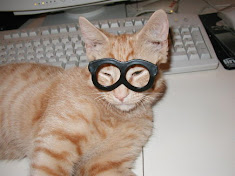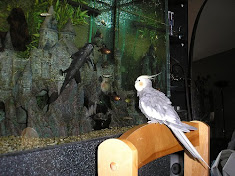With that mindset I've compiled a list of 10 nutritional tips to help you maintain your horse's weight at all times, no matter what activity it might be doing.
 |
| Hefty Horse Grazing by David Domingo |
2. The number of calories, (MJ of digestible energy) he eats needs to be less than the number of calories he uses. Increase the amount of work he does, borrow a jockey, lunge, ride and lead if you have 2 horses and only time to ride one.
3. Most horses resting, retired or in light work will consume excess calories just from grazing. Ignore the traditional advice of 1 horse/acre and overgraze the paddock with a minimum of 3-4 horses/acre, (make sure you pick up droppings and pull ragwort).You will be surprised just how little grass cover is needed to maintain weight on your horse. Horses and ponies don't get fat on 'fresh air'; they get fat on grass.
4. If you cannot 'overgraze' your grass with other horses, keep it cut; think how often the garden lawn needs cutting, your horse is consuming all this!
5. Rather than strip graze, put an electric fence in a u shape around the field so that the water is at the opposite end to the gate. This will increase the amount of exercise your horse has to do and therefore he will use more calories.
6. Weight loss must be slow and does not require you to 'starve' your horse. Rapid weight loss or restriction of food will lead to hyperlipaemia(high blood fat) or a reduced metabolism making subsequent weight loss more difficult. If your horse is obese, (20% over his optimum weight, then it will take at least a year to shift the weight).
7. It might be tedious but weigh any food you are giving including hay or haylage the first time you use the products. If the advice is to feed 500g a day of a balancer then find a yogurt pot or similar that holds 250g EXACTLY. This means that you will not be tempted to sneak the ¼ scoop up to ½ scoop!!
8. Take a photo on a monthly basis; you don't notice weight changes when you see your horse every day. Weigh using a scientifically validated weight tape fortnightly at the same time of day and fat score at the same time. Keep a diary of the changes.
9. Consider a muzzle. Horses standing in a stable use considerably less calories compared to those out moving around.
10. Remember that steady but active walking burns up more fat than trotting or canter work. Ensure that your horse gets at least ½ hr per day of brisk walk. Exercise is also protective against insulin resistance for both horses and humans.
Bonus Tips
11. Leave that rug off. Horses use 80% of their feed energy to keep warm. Insulate them with a rug and the extra calories will go on their back as fat.
12. Remember that calories are energy and energy is calories. If you have a cuddly laid back horse, he doesn't need extra calories to give him energy. Extra calories = more weight gain.
Author Resource: Written by Felipe Bazon
Got a question about equine nutrition? Feel free to ask them via the comment section and I'll kindly answer them as soon as possible.



0 comments:
Post a Comment